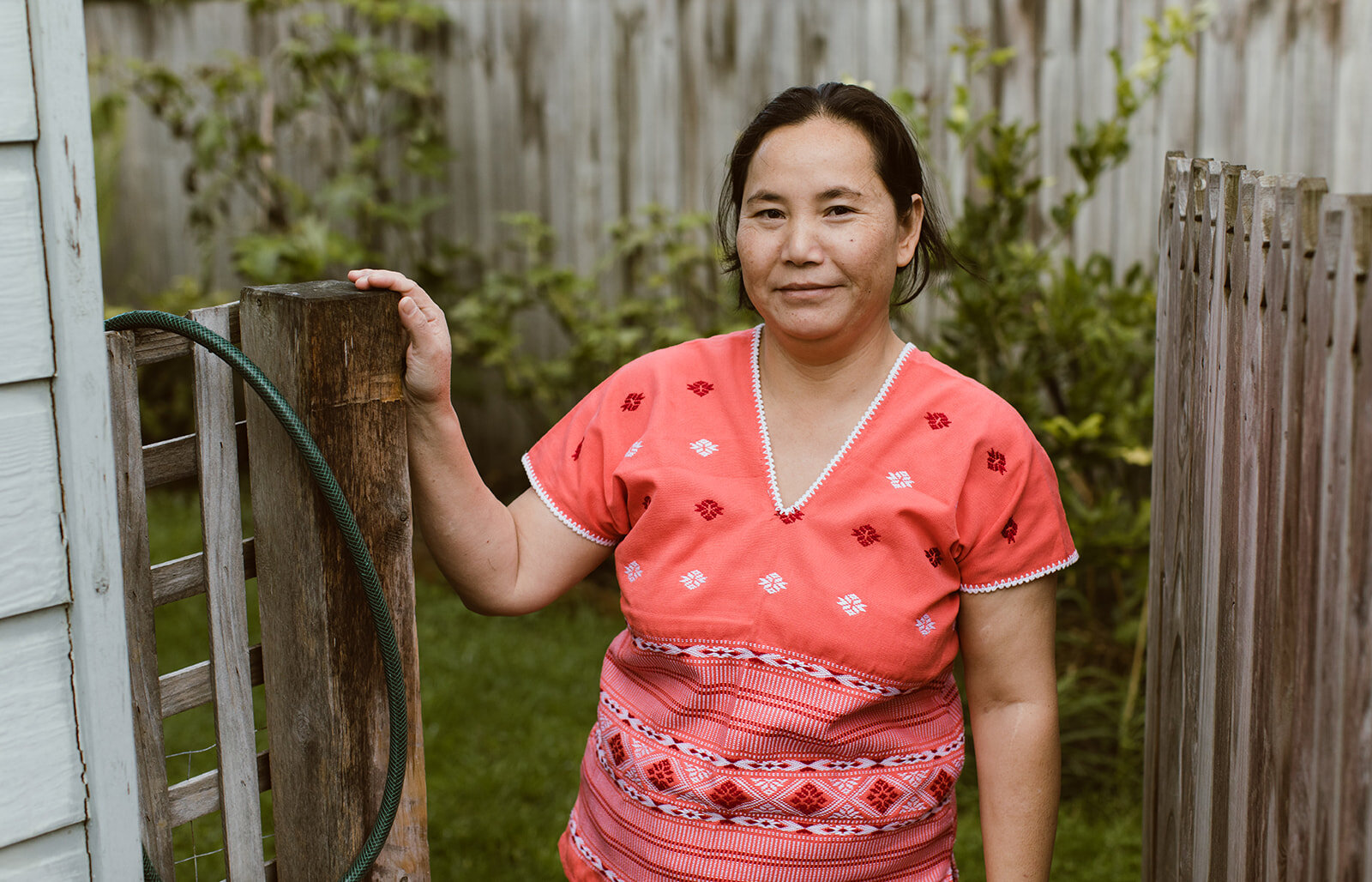Mue Hsay
From Burma (Myanmar) to Wonthaggi
I am a Karen woman.
I was born in Burma.
My mum passed away when I was a child. I was eight years old.
After that, I worked for people. I was a babysitter, I grew rice and I looked after cows – I did whatever I could do to get things like clothes.
I never went to school.
I married my husband, Ahklay, in 1993.
Our first baby died after falling ill. We found it very hard to get medicine.
It wasn’t safe in Burma.
Our family lived in a small village, but we had to keep leaving where we were living. The army would raid village after village.
When the army came to a village, they’d take food. Sometimes they killed the animals. Sometimes, they took people with them to carry their things as they went on their way.
The Burmese army would come to our village and everyone would run. The army set fire to the buildings. They controlled all the village. People did not wish to stay there.
We would run, and the army would come again.
They burned down our hut.
We had to keep moving.
I lost my leg in 1998. I stood on a landmine. I was pregnant with my second daughter at the time. My family took me to hospital, but I couldn’t stay there. We didn’t have enough money.
I left the hospital and later gave birth to my daughter in our village.
I couldn’t walk for one year after I lost my leg. I had no crutches, nothing to use.
It was too hard for me to get a new leg. So my father, my brother, my sister, my husband – my whole family carried me through the jungle. They carried me on bamboo. It was very hard.
It took us three days to get to Thailand. When we got there, we stayed at the Mae La refugee camp.
My father stayed with us only for one month, and he went back to Burma. I thought it’d be a short time at the camp and then I’d get better and go back to my village.
But I didn’t get better.
I became pregnant and gave birth to our son in the camp.
I didn’t like the camp much. It was like jail. It was very hard looking for food – there was never enough. I slept on a bamboo floor; my hut was only small.
Then one day, I was walking around my hut and my monk asked me, “do you want to go to another country?” I said, “yes, I want to go”. So we applied, I did an interview and two years later, I found out we were going to Australia.
We arrived in Australia on 19 August 2008. It was winter, and I nearly froze. I came with only one bag. We didn’t own many clothes.
We had one week of training in the Australian way of life, but that didn’t prepare me or my family.
We experienced many firsts when we came to Australia.
It was my first time on a plane, my first time in a car, my first time seeing a lawn mower and my first time going to the beach.
We couldn’t have done it without our Australian host family. They picked us up from the airport and we lived at their house in Wonthaggi until we found a place to rent. They’re still close by, even to this day.
In Australia, our children went to school and my husband worked at the local meatworks. I learnt English and made friends at the local neighbourhood house. I go there three times a week now for gardening, socialising and knitting, and I do English classes twice a week at the adult learning centre.
We bought our own home in North Wonthaggi six years after arriving in Australia. In Burma, no house. In Thailand, no house. It’s just here – Australia – where we have our own house.
My children and I became Australian citizens in 2013. Ahklay became an Australian citizen in 2018.
I think it’s good, Australia.
I have good friends. A lot of people are helpful. I would like to stay here.
I’m very safe here with my family.


